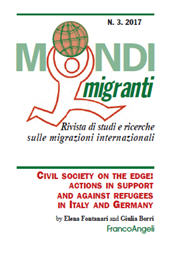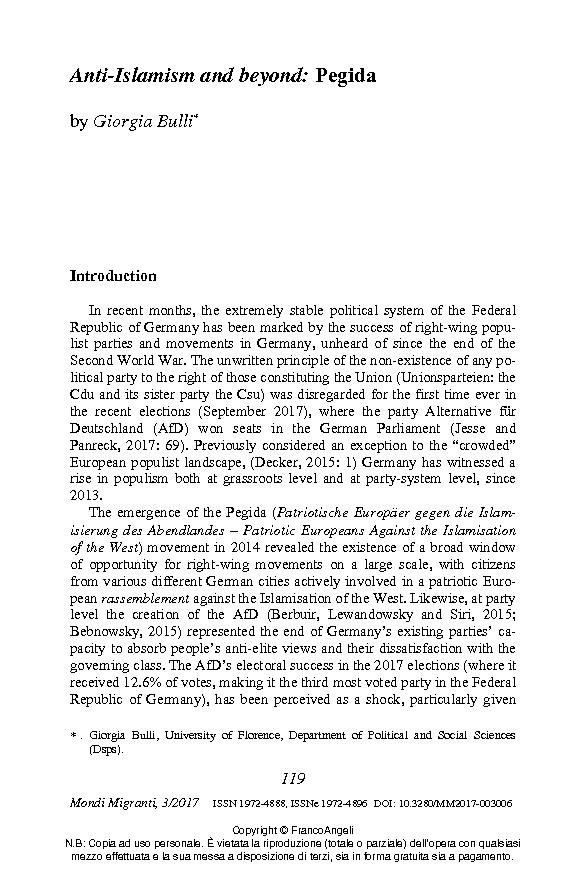Anti-Islamism and beyond : Pegida
119-135 p.
The name Pegida (Patriotische Europäer gegen die Islamisierung des Abendlandes) stands for "European Patriots against the Islamisation of Europe". The movement, created in October 2014, mobilizes on the cry of anti-immigration and anti-elite slogans. Initially joined by a few thousand people in the city of Dresden, the weekly rallies held every Monday reached 25.000 participants at the beginning of 2015 in Dresden, currently gathering 2-3.000 people every Monday. Anti-immigration stances, notably the anti-Islamic positions already evoked by the movement's name, represent a very important part of the ideology and rhetoric of Pegida's mobilization and success, albeit not the only one. The origins of Pegida, the composite nature of its sympathiser and participants, Pegida's rich symbolic apparatus, all point to a structured system of recurrent, cross-cutting, reciprocal reinforcing factors.
Their unifying features consist on the one hand in frustration with the unfulfilled promises of democracy - a characteristic element of populist parties and movements - reinforced in the case of Pegida by the centrality of the Eastern variable - and on the other hand in the fears about the uncertainty and increasing segmentation of Western society and communities, which are perceived as being increasingly threatened by economic and cultural globalisation and economic insecurity. In this context, the trait d'union represented by the anti-Islamic and anti-immigration stances, is both a recognisable feature and acts as a means of garnering visibility and agreement at a time when anti-Islamism represents one of the core elements of populist right parties and movements. [Publishers' text].
Forma parte de
Mondi migranti : 3, 2017-
Artículos del mismo número (disponibles individualmente)
-
Información
Código DOI: 10.3280/MM2017-003006
ISSN: 1972-4896
KEYWORDS
- Social movement, populism, anti-immigration, anti-Islamism, anti-elitism, mobilization



